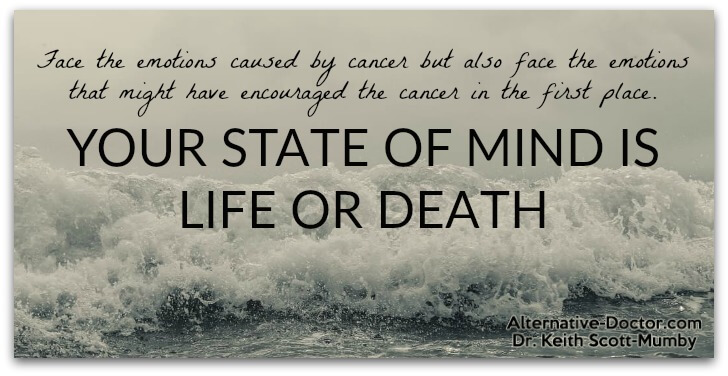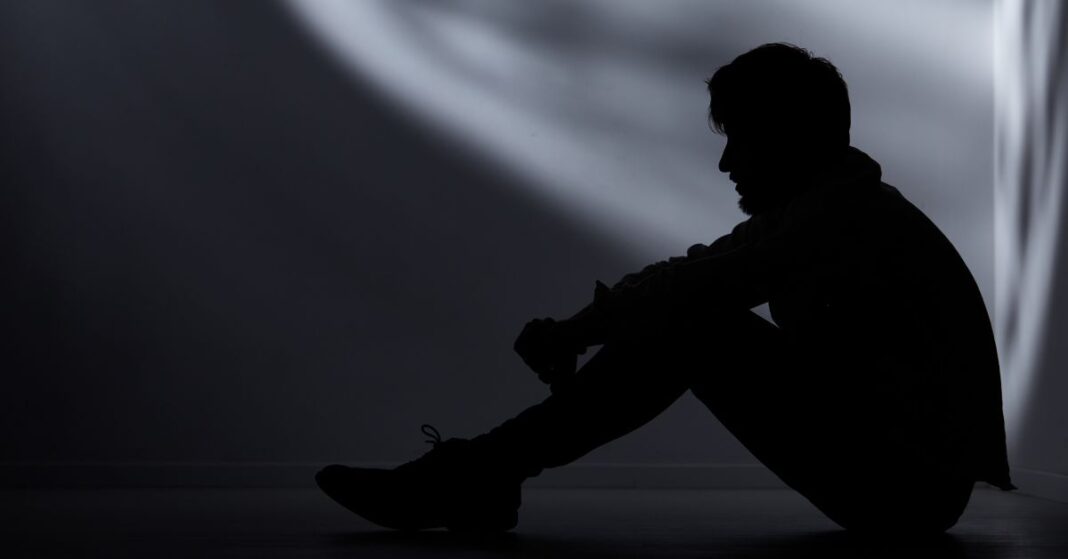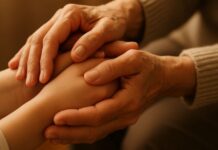Your emotional state affects your health before, during, and after a disease diagnosis. How you think, how you feel, how you go through life changes you on the cellular level.
Emotions and cancer are far more linked than mainstream scientists and conventional doctors would have you believe. Despite scores of studies showing the connection between stress, inflammation, and deadly diseases – it seems making the leap between emotional health and physical health is simply too difficult.
If your emotions are negative or chaotic before you’re diagnosed with cancer, imagine the upheaval you’re going to feel once you receive the news that the #2 killer in the world is now part of your life. I’ll give you a hint: it won’t be good!
Beyond Positive Thinking
Not everyone thinks positively or lives a life of gratitude. Staying healthy is more than “happy thoughts” on a daily basis. The rise in major diseases and mental disorders tells a bigger story beyond just getting sick. It says much about the state of our emotions and mental wellness.
You can’t focus on the symptoms and get long-term results. You must address the cause…and our emotions are part of the problem. The emotional baggage you haul from place to place, relationship to relationship, and situation to situation is weighing you down in ways you probably don’t even recognize!
Clearing your mind and emptying your spirit of past trauma, loss, anger, and self-loathing is crucial to how you physically feel today. Happy thoughts today accomplish nothing if you’re still carrying around the loss of a parent, the end of a relationship, or your own guilt about addiction.
Every person’s story is different and unique. I can’t tell you what you need to purge but I can make an educated guess that you have things buried deep, festering, that are affecting the way you look and feel. How do I know? Because who among us doesn’t have moments of sadness and grief in our pasts by the time we make it to our thirties, forties, and beyond?
Pretending it doesn’t exist allows the problem to continue. To sit deep inside your mind, never resolved, causing issues you don’t even realize until it’s too late.
Let’s talk about actual diagnosis of a major disease such as cancer. Emotions will immediately flare to nuclear levels because disease terrifies everyone. No one is immune.
Steadying Your Emotions and Cancer
If you haven’t addressed and performed a deep emotional cleansing before a diagnosis of cancer, I cannot tell you how critical it is to your fighting and beating the disease now.
You’re going to be dealing with a lot of different information. Your doctor will talk to you about treatment options and the statistics related to your specific type. Hopefully (if you have a truly caring and compassionate oncologist), he/she will also discuss natural ways to improve your chances of survival such as diet, sleep, and keeping stressors as low as possible.
There’s a lot to consider medically, financially, and personally. It won’t be easy.
The physical toll of conventional cancer therapies is brutal to your body and this makes it even more important to maintain your mental and emotional strength.
Let’s talk about the three biggest obstacles you’re going to face…and how to overcome them.

Top 3 Negative Emotions and Cancer
1. Anxiety: The news is bad enough. The treatments put you through the ringer and take pretty much everything you have left. You’re going to feel fear and vulnerability in waves that’s going to affect your ability to stay upbeat. Every drop of stress in your life is counterproductive to beating cancer.
Don’t wait until this emotion is out of control. Talk to someone! If you don’t have a strong support system in the form of friends and family, reach out to other patients, get a referral through your doctor for a good therapist, or even join an online group that can help you when things get bad.
2. Depression: Feeling down is normal for all of us at one point or another. Depression is so much more than that. Experts estimate that 30% of cancer patients have clinical depression during treatment. It’s a lot to deal with and you can get overwhelmed quickly.
A major side effect of conventional cancer therapies (surgery, chemo, and radiation) is a massive fluctuation in body chemicals. This can wreak havoc on your hormones, nutrition, and immunity. None of which are good for your emotional health.
Family and friends can also present with depression when a loved one undergoes treatment for cancer. It’s important that everyone communicate with each other and an outside source such as a pastor or therapist to nip it in the bud. Negativity is contagious!
3. Post-Traumatic Stress Disorder (PTSD): This is one that can haunt you long after you beat Emotions don’t automatically recover so be on the lookout for high-risk behaviors, substance abuse, or isolation in yourself or a loved one following a cancer scare.
The general consensus is that these “ripples” left over from a cancer fight can impact your life for months or even years after the cancer is gone. Again, don’t ignore warning signs of PTSD! Talk to someone in your circle of friends and family or seek outside assistance. Left untreated, this condition can worsen quickly.
No matter how you feel at any given moment, you’re not alone. Cancer affects millions of people just like you around the world every year. Technology has made it possible to connect to others in a way that wasn’t possible even a decade ago.
Asking for help isn’t a sign of weakness – it’s a sign of strength!
Don’t let emotional upheaval rob you of your quality of life.
Face the emotions caused by cancer but also face the emotions that might have encouraged the cancer in the first place. Your state of mind is LIFE OR DEATH and that’s the honest truth.
The Psychology of Cancer
Cancer is not a death knell but it’s definitely a wakeup call. You need to have as many tools as possible to bring to bear on the case. I looked around and figured out that a very important holistic cancer therapy book was missing.
I decided to write it myself!
The Psychology of Cancer contains the wisdom of 35-40 years of accumulated clinical experience with full scientific backing. There are no opinions or fluff, just facts. There are things I know to be true and things other people have PROVED are true.
You need this book and the information it contains like you need oxygen. Read it now!




